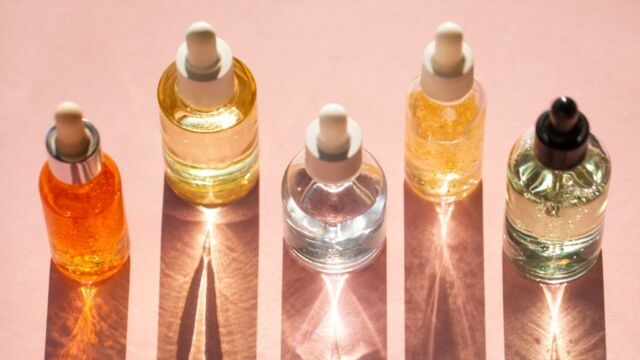Retinol was the single most searched skincare ingredient of 2020. This anti-ageing, anti-everything product promises to keep your skin young and fresh, but it can also be pretty irritating to the skin. Now, a new natural ingredient is making its way into the market, posing as a retinol alternative - bakuchiol.
Discover our latest podcast
What is bakuchiol?
Although it may be new to western skincare, bakuchiol has been used in ayurvedic and traditional Chinese medicine for many years. The natural ingredient is derived from the seeds and leaves of the Babchi plant, which is native to Sri Lanka and India and was used to treat several skin conditions and hyperpigmentation.
Now, bakuchiol has risen in popularity in western skincare due to claims that it has the same benefits as retinol with none of the irritation. Some brands even claim that this natural alternative is better than retinol itself.
Bakuchiol vs retinol
One recent randomised, blind study from 2018 compared the effects of both retinol and bakuchiol and found that bakuchiol stood the test when it came to reducing photo-ageing. As a bonus, there was also less photosensitivity with bakuchiol than retinol, meaning that skin was less likely to become irritated when exposed to the sun. The study also found that bakuchiol doesn’t shrink the skin’s oil glands the way that retinol does, resulting in less dryness, flaking, and skin peeling.
Another study from 2014 showed that the ingredient, much like retinol, helped to stimulate collagen production. The study also concluded that bakuchiol was even more effective than retinol when it came to preventing collagen breakdown. However, this study was carried out by the founder of a company that sells bakuchiol, so the results must be taken with a grain of salt.
So far, bakuchiol seems like a promising ingredient for those that wish to avoid retinol, but retinol shouldn’t be discounted altogether. Studies on the benefits of tretinoin go back as far as the 70s, while research on bakuchiol is still just peeking its head out of the ground. The in-depth and extensive literature surrounding retinol and its effectiveness are the very reason they’re considered a go-to ingredient for many dermatologists.
What are the benefits of bakuchiol on the skin?
As the studies above concluded, bakuchiol has similar benefits to the skin as retinol, including anti-ageing, anti-inflammatory, antioxidant and anti-bacterial properties, making it effective in:
- Reducing and preventing fine lines and wrinkles
- Evening skin tone and hyperpigmentation
- Increasing collagen production and cell turnover
- Protecting the skin against oxidative stress
- Reducing acne and inflammation
Unlike retinol, bakuchiol is less likely to cause dryness, irritation or photosensitivity and is safe to use twice a day.
Who should use bakuchiol?
Due to its less irritating properties, bakuchiol is suitable for all skin types, making a perfect retinol alternative to those with dry and sensitive skin. Although as bakuchiol is a natural ingredient, it is much more likely to trigger allergic reactions than synthetic retinol.
Bakuchiol has also been said to be safe to use whilst pregnant, which retinol is not. However, human studies are not likely to be carried out on pregnant women, so those wanting to err on the side of caution may wish to avoid bakuchiol during pregnancy also.
How to use bakuchiol in your skincare routine
Bakuchiol is currently available in the forms of both serums or creams, and which type you have will determine where you will use it in your skincare routine.
When it comes to serums, apply bakuchiol to a damp face after using any cleansers and toners. If your bakuchiol comes in cream form, use it as you would any moisturiser, after thinner products and before your SPF.
Due to its gentle nature, bakuchiol is also safe to use twice a day and does not clash with any other ingredients, including vitamin c, AHAs and BHAs, as well as benzoyl peroxide creams.
Best bakuchiol products
Think bakuchiol might be for you? Give these products a try:



















